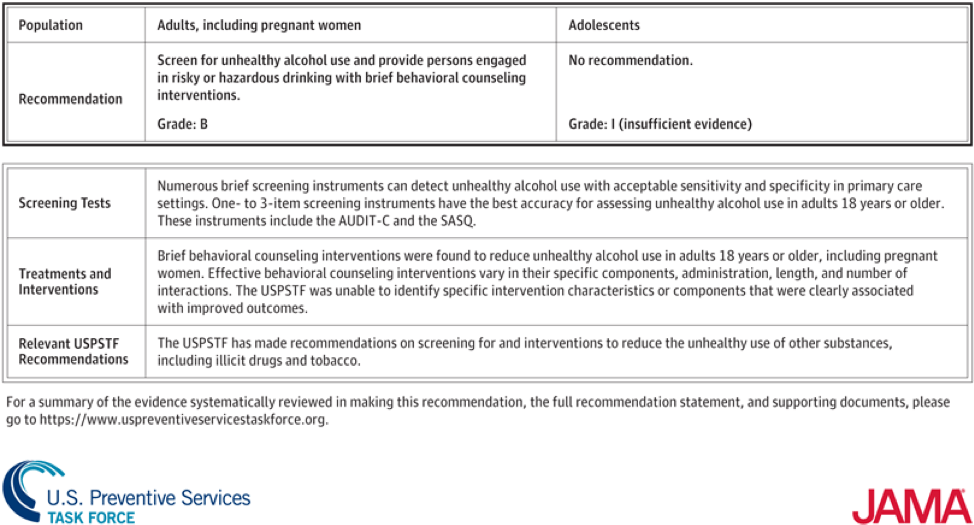United States Preventive Services Task Force (USPSTF) is “an independent panel of experts in primary care and prevention that systematically reviews the evidence of effectiveness and develops recommendations for clinical preventive services.” Specifically, the USPSTF evaluates scientific evidence to determine whether medical screenings, counseling, and preventive medications work for adults and children who have no symptoms. Since many employers include clinical programs in their employee wellness initiatives, the USPSTF’s guidance is often considered in determining which clinical programs to include.
An important thing to note is that the USPSTF does not consider cost as a factor in its recommendations, and it does not perform cost-effectiveness analyses. This is an important consideration for employers looking for an employee wellness program that generates a financial return from lowering medical claims. In these cases, a USPSTF recommendation does not necessarily mean that a specific procedure should be included in a wellness program. On the other hand, if a clinical exam is not recommended by the USPSTF, it should certainly not be included in an employee wellness program. By including a clinical exam that is not recommended by the USPSTF, companies risk causing harm to their employers. This is why employers should quit providing and/or encouraging annual biometric screenings or checkups, as the USPSTF does not recommend routine annual health checkups.
A recent addition to the USPSTF recommended screenings is an alcohol checkup. According to the new task force statement, all adults, including pregnant women, should be screened for unhealthy alcohol use by their primary care physicians. The grade for the screening was a B, which means there is “high certainty that the net benefit is moderate, or there is moderate certainty that the net benefit is moderate to substantial.” Unhealthy alcohol use means drinking beyond the recommended limits, which, according to the National Institute on Alcohol Abuse and Alcoholism, is more than four drinks in a single day and 14 drinks in a week for men age 21 to 64. For women and older men, the institute advises no more than three drinks in one day and no more than seven drinks in a week. There is no safe level of alcohol for pregnant women.

The USPSTF focuses on health outcomes while employers that offer wellness programs should look at a broader set of benefits, including productivity, absenteeism, and others. Employees that abuse alcohol are certainly not thriving in the workplace and not delivering their best work along the way. This impacts the company’s bottom line, so the case for companies to consider and address alcohol abuse is stronger than a simple grade B would suggest.












